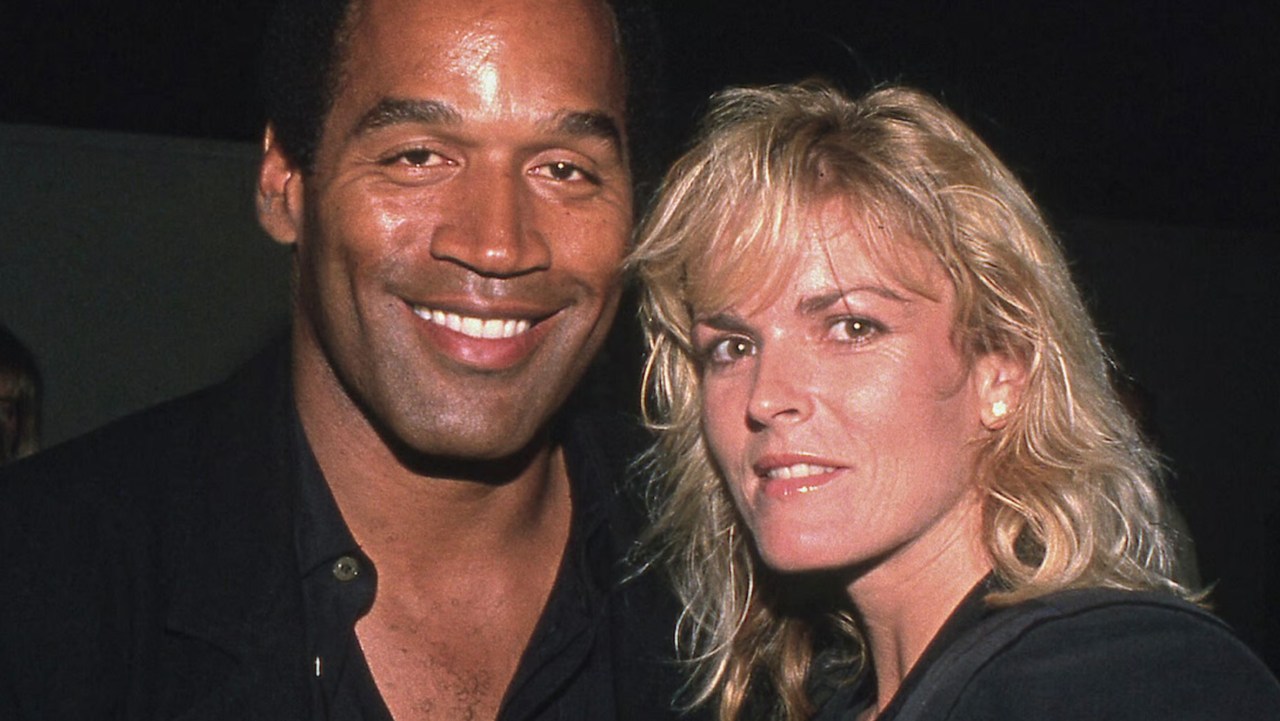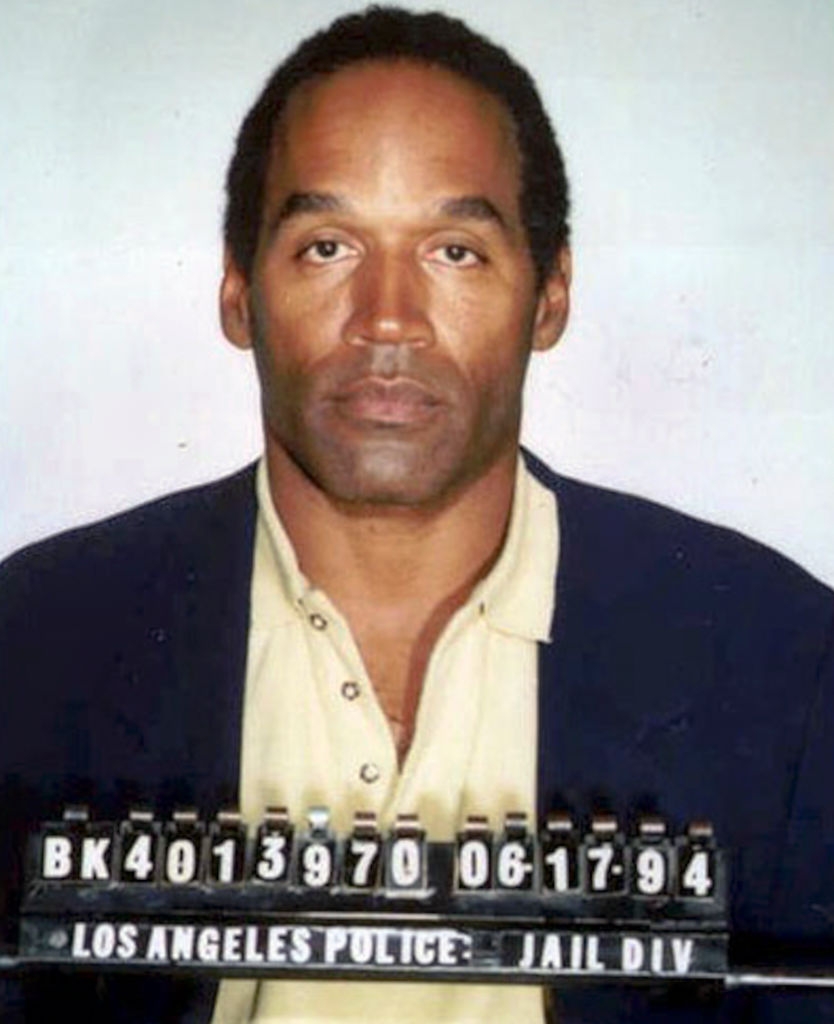OJ Simpson Trial: Judge Lance Ito & Key Controversies Explained
Could a single trial truly reshape the landscape of televised justice and ignite a firestorm of public debate? The O.J. Simpson trial, presided over by Judge Lance Ito, achieved precisely that, becoming a watershed moment in legal history and a cultural phenomenon that continues to resonate today.
The saga of Orenthal James Simpson, a former NFL superstar and actor, captivated the nation. The trial, officially titled "The People of the State of California v. Orenthal James Simpson," centered on the brutal murders of Nicole Brown Simpson, his ex-wife, and Ronald Goldman, on the night of June 12, 1994, outside Nicole's Brentwood, Los Angeles, condominium. Simpson, initially flying from New York to attend his daughter's dance recital that very night, found himself at the heart of an investigation that would unfold into a media spectacle of unprecedented proportions.
| Attribute | Details |
|---|---|
| Full Name | Lance Allan Ito |
| Born | August 2, 1950 |
| Nationality | American |
| Profession | Retired Judge |
| Notable For | Presiding over the O.J. Simpson murder trial |
| Education | University of California, Los Angeles; Loyola Law School |
| Career Highlights | Los Angeles District Attorney (former); Judge, Los Angeles County Superior Court |
| Spouse at Time of Trial | Margaret York (a high-ranking LAPD official) |
| Key Decisions in Simpson Trial | Allowed cameras in the courtroom, significantly altering televised trial formats |
| Legacy | Influenced the public perception of the justice system and media coverage of trials. |
| Reference | Wikipedia |
The prosecution, spearheaded by Marcia Clark and Bill Hodgman, with jury consultant Don Vinson providing strategic guidance, meticulously built their case. The trial began on January 24, 1995, with Judge Lance Ito at the helm. Judge Ito, a pivotal figure, meticulously explained the procedures to the potential jury members and warned them of the trial's expected duration, anticipating the months-long proceedings that were to come. The defense team, meanwhile, skillfully used every opportunity to challenge the prosecution's evidence and cast doubt on the LAPDs investigation.
- 2023 Kannada Films Latest Releases News You Need To Know
- From Conservation To Canine The World Of Beag And Beagles
The Sixth Amendment of the United States Constitution, which guarantees a defendant's right to a speedy and public trial by an impartial jury, provided the cornerstone for the trial's proceedings. This fundamental right, along with the due process clause, ensured that Simpson was entitled to a fair trial, a concept that the O.J. Simpson trial dramatically brought to the forefront of public consciousness.
The prosecution team, aware of the immense public interest, emphasized the history of domestic violence that preceded and followed the Simpsons 1992 divorce, framing it as a potential motive for the crimes. The Los Angeles District Attorney's office, led by Clark and Christopher Darden, made this a central tenet of their argument. According to the plaintiffs, Simpson was reportedly in a foul mood on the night of the murders.
The evidence presented by the prosecution was substantial. The discovery and initial investigation of the crime scene and the early leads, including the physical evidence, such as the blood found at the scene and in Simpson's car, along with forensic analysis, was a focus. The defense team, however, challenged the methods used by the LAPD, raising questions about the handling of evidence, and even the possibility of contamination, which was also a crucial part of their strategy.
- Elk Grove Village Usps Package Delays Issues What You Need To Know
- Mothers Warmth Chapter 3 Jackermans Emotional Journey
One of the most debated aspects of the trial was Judge Ito's decision to allow cameras in the courtroom. This was a decision that would forever change the nature of televised trials. Loyola's Laurie Levenson noted that Judge Ito was, at the time, proud of the American criminal justice system and believed that the public should witness the proceedings firsthand. However, this decision transformed the trial into a media circus, with every moment scrutinized and debated.
The publics reaction to the verdict was sharply divided along racial lines. The Simpson trial was met with a starkly different reaction from white Americans, highlighting the racial divisions that were present in the nation at that time. In 1994, it was reported that 22% of Black respondents believed Simpson was guilty, while 63% of white people believed he was guilty.
The defense, for its part, vigorously challenged the evidence, particularly the LAPD's handling of the investigation. The defense team, led by Johnnie Cochran, who was known for his charismatic and strategic approach, effectively presented their arguments to the jury. The luminol tests for blood, the glove that didn't fit, and the allegations of racism within the LAPD became key elements of the defense strategy.
The jury's decision, reached in less than four hours, confounded many legal experts who had predicted a hung jury. Simpson was acquitted of the double murder charges on October 3, 1995. The trial, often dubbed the "Trial of the Century," left a lasting impact on American society.
Judge Lance Ito's role was central. He became a public figure as a result of the extensive media coverage. The documentary explores some of the critical decisions he made and examines their influence on the case as a whole. Ito's background, including his previous work as a Los Angeles District Attorney and his marriage to a top LAPD official at the time, led to intense scrutiny and speculation about his impartiality. The defense team capitalized on these areas of vulnerability.
The case also served as a case study on jury selection and the importance of perception and bias. Clark County District Court Judge Jackie Glass presided during the second day of jury selection for the O.J. Simpson trial at the Clark County Regional Justice Center in Las Vegas on Sept. Judge Ito was assigned to the case. The prosecution decided not to pursue the death penalty and instead, sought life without parole for the defendant if he was convicted.
In the aftermath, the trial continued to generate discussion, analysis, and debate. One of the key figures in the trial was judge lance ito, who presided over the proceedings at the los angeles county superior court. The trial began on january 24, 1995, with lance ito as the presiding judge. The prosecution decides not to pursue the death penalty and instead, seeks life without parole for the defendant if hes convicted. The prosecution team, led by Marcia Clark and Christopher Darden, highlighted the domestic violence that had occurred before and after the Simpsons' 1992 divorce as a motive for the murders.
Comedy writer Russ Myers's comment on the impact of allowing cameras in the courtroom offered a unique perspective. Judge Ito's decision has undoubtedly influenced the way televised trials are handled, and the ripple effects continue to be felt.



Detail Author:
- Name : Elisabeth Feeney Jr.
- Username : dpowlowski
- Email : rico32@ohara.biz
- Birthdate : 1977-03-20
- Address : 859 Sister Summit Suite 964 Port Mia, KY 29710
- Phone : (810) 849-8510
- Company : Tromp LLC
- Job : Talent Acquisition Manager
- Bio : Aut perferendis aut error porro vitae. Veniam totam est beatae autem est in tempore. Dicta sit nisi deleniti ex eos. Quos iusto pariatur sint minima omnis qui ea ad.
Socials
tiktok:
- url : https://tiktok.com/@chadrick4794
- username : chadrick4794
- bio : Facilis saepe amet in quam fuga eos hic.
- followers : 5005
- following : 1216
twitter:
- url : https://twitter.com/chadrick_official
- username : chadrick_official
- bio : Commodi consectetur tenetur dolor occaecati fugit sed est. Adipisci qui ipsa occaecati. Esse quis libero dolores ducimus ducimus at dolorem.
- followers : 1363
- following : 731
instagram:
- url : https://instagram.com/ckoch
- username : ckoch
- bio : Nihil perspiciatis ad ut architecto nobis. Voluptatem ipsa et adipisci ut eos perspiciatis libero.
- followers : 199
- following : 2200
facebook:
- url : https://facebook.com/chadrick5819
- username : chadrick5819
- bio : Odit quo earum repellat.
- followers : 3799
- following : 2152
linkedin:
- url : https://linkedin.com/in/koch1986
- username : koch1986
- bio : Eum et dolore rerum blanditiis.
- followers : 875
- following : 1891